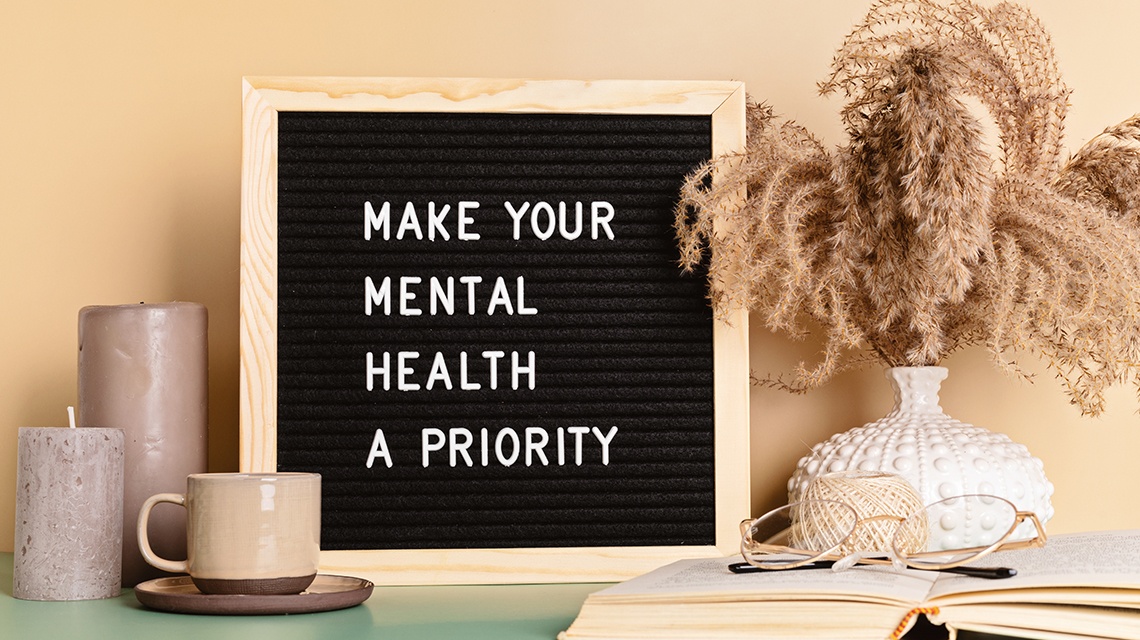
New Year, New You?
Approaching New Year’s Resolutions Realistically
January 1, 2025Approaching New Year’s Resolutions Realistically
January 1, 2025The start of a new year can feel fresh and exciting, like a blank page waiting to be written. So it’s no surprise that some of the most common associations we have with this time of year revolve around Resolutions with a capital R. Eat better, workout more, start meditating, learn a new language… Well-intentioned as it may be, this tendency to try to radically change our lives come January 1st often sets us up for failure.
There are plenty of reasons that your resolutions don’t stick and start waning after just a few weeks have passed by. It could be a tendency to overemphasize external factors and place significance on surface-level changes (like physical appearance) as opposed to deeper well-being. Or that the short-term focus and unrealistic expectations make it difficult to sustain efforts when there aren’t immediate results. There’s also the added layer of societal pressure woven into the concept of a New Year’s Resolution that can foster and fuel stories of inadequacy.
That’s not to say that setting goals and making changes in your life is a bad thing ─ quite the opposite! Set yourself up for success by modifying the intention and the form of your resolutions and start coming at them from a place of greater compassion and self-acceptance.
To help you along the way, we’ve compiled a short guide to set more realistic goals, manage expectations, and to, hopefully, make sustainable positive changes.
Set yourself up for Success!
Self-Love as a Starting Place:
It’s important to begin here because, as cheesy as it may sound, attempting to force yourself to change from a belief of ‘there is something wrong with me’ is, on a practical level, difficult to sustain, and, on an emotional level, causing more harm than good. As paradoxical as it may feel, by starting from a vantage point of accepting yourself as you are, while adopting healthy changes that can deepen your sense of well-being and fulfillment, you will have both radically better results and a more peaceful experience throughout the process.
Motivation Matters:
Motivation is key when it comes to implementing lasting change, and it is super important (if not vital) that you tap into that motivation from within. If you are undertaking a lifestyle modification because you want to be liked by other people or are seeking external validation through forming a new habit, it’s unlikely you will persist past the inevitable plateaus and difficulties along the way. Dive deep and ask yourself why you want to change things and what is driving you, and move from there.
Realistic Goal Setting:
Once you pinpoint your motivation, try setting realistic and achievable goals. It’s great to be ambitious, but adopting unattainable goals can lead to frustration and disappointment. Break down your larger goals into smaller, manageable steps. A helpful guideline to better focus your efforts is to use the method of asking yourself if it is a S.M.A.R.T goal (Specific, Measurable, Achievable, Realistic, and Timely).
Focus on the Process, Not Just the Outcome:
Instead of solely focusing on the end result, try to appreciate the journey along the way. For example, if you are aiming to become more fit within your body, try focusing on how it feels internally to incorporate more movement into your life. What are some of the satisfying sensations that you gain by growing stronger in your body?
Let Go of Resolution Perfectionism:
No matter what your resolutions and goals are, if you are coming at them from a perfectionist mindset (ie.’ from now on I will exercise an hour every day’) then anything short of 100% will stress you out and make you feel terrible. Give yourself some grace when it comes to making change and let go of the need to get it perfect.
Flexibility and Adaptability:
Connected with the above, it is important to give yourself a little wiggle room in your resolution protocol. Life is unpredictable, and circumstances may change. Be open to adapting your goals based on the situations you encounter and have compassion with yourself: it’s okay to modify your resolutions if need be.
Patience is Key:
Change takes time. Understand that achieving your resolutions will not happen overnight and try to be patient with yourself by acknowledging that progress is a gradual process. Consistency is often more important than intensity, and a slow and steady approach to change is much more gentle (and sustainable!) than a sprint which may quickly burn you out.
Build a Support System:
Share your resolutions with friends or family who can provide encouragement and support. Having a support system can help you stay motivated, and they can also offer valuable insights or advice. Plus, sharing new, healthy habits with your community can make the whole process more fun!
Mindful Reflection:
Periodically reflect on your resolutions. Consider what is working well, what needs to be altered, and whether your goals are still aligned with your values and priorities. Adjustments may be necessary as circumstances evolve.
Celebrate Milestones:
This one is important: make sure you celebrate your achievements along the way! Whether it’s completing a milestone or maintaining a new habit for a specific period, take the time to acknowledge and reward yourself for your efforts.
Embrace a Growth Mindset:
Try to adopt a growth mindset that views challenges as opportunities to learn. Setbacks are a natural part of any journey ─ instead of viewing them as failures, try to see them as opportunities to take notes and improve. Identify what went wrong, adjust your approach, and move forward. Understand that plateaus or setbacks are not indicative of your abilities but rather a chance to enhance your resilience and determination.
Bottom Line:


